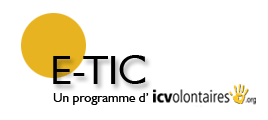AgriGuideBest Practices
Organic Production in Identified Food and Cash CropsOrganic agriculture (OA) is a holistic approach promoting and enhancing the health of aggro-ecosystems, including biodiversity, biological cycles, and soil biological activity. OA emphasizes the adoption of best management practices in preference of off-farm inputs, taking into account that regional conditions require locally adapted systems. This strategy is accomplished by adopting best agronomic practices to fulfill any specific function within the farming system. Practices of organic farming vary worldwide. Some farmers follow the strict production guidelines of a particular regulatory code while others develop their own independent systems and practices. However, all organic farming systems share common goals and practices:
Within this framework, farmers develop their own organic production systems, according to their aggro-ecological conditions such as climate, land-races, social regulations, gender, farmers’ food basket preferences, and market opportunity. OA also provides benefits in resource scarce ecosystems and economies. OA is a tool for sustainable agriculture to efficiently manage natural resources and increase income. Within this concept, Best Practices for Organic Production (BPOP) provides information on best practices on food and cash crops management for small-holder farmers in Senegal and Mali. The BPOP is one of the concrete outcomes of the E-TIC program, an initiative focusing on the use of technology and information in a development context. In Senegal and Mali, E-TIC focuses its efforts on information related to farming, fishing and husbandry. E-TIC was initiated and is coordinated by ICVolunteers (ICV), an international non-profit organization specialized in the field of communications. ICV’s experience shows that farmers rely on locally available inputs, such as seeds (land-races) and technologies, to improve food production and productivity and to consequently attain food security at household level. The surplus is expected to reach local and national markets, guarantying a certain threshold of quality control, where it possible. BPOP is an ICV's initiative to address the gap in agricultural education. By providing farmers with learning tools aimed at increasing knowledge, we hope to ensure agricultural production and productivity on crops management and income. BPOP seeks to:
To efficiently maintain and use locally available resources and implement sustainable farming practices, farmers are required to:
One of the constraints African farmers face in adopting sustainable agriculture and organic agriculture is the low education level coupled with lack of financial resources. However, based on ICV’s experience in Senegal and Mali, farmers, both women and men, always show great interest in new farming methods; especially when they are fully involved in a participatory approach and low-cost technologies, which contribute to improving their yields, and stabilize and increase their income. OA is knowledge-intensive. Therefore, education is a key to developing sustainable agriculture. Farmers need to know how to:
This BPOP version is a dynamic document, tailored to the current and expected reality in Senegal and Mali over the next 3 years. |

